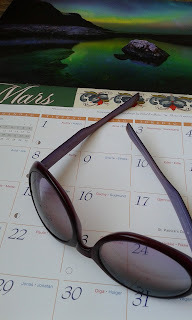Thursday, March 9, 2023
If we could see through her eyes now…
Wednesday, February 23, 2022
Palindrome Day 22022022
Yesterday was a fitting day to begin a new journey – or to take a new perspective on the existing journey. Sometimes we get hung up by the past. “Don’t look back or you’ll turn to a pillar of salt” doesn’t mean that we should avoid examining our lives, living only for today or tomorrow. Balance that allows us to move forward grows from an accurate awareness of where we stand. That includes honesty about the past as well as optimism and strategy for the future. It is my prayer that the story of my life will ultimately make sense in the greater context of God’s eternal timelessline.
I’ve told my children all of their lives that “people are consistently inconsistent.” It’s definitely a perspective that helps avert disappointment and frustration. Frustration with the inconsistencies of our fellow humans stems from the inconvenience it causes us, and it doesn’t help that their glaring inconsistencies usually mirror the things we have worked so hard to mask within ourselves! It throws us off balance as we struggle to feel at home on the balance beam of a linear timeline. We should grow, getting better and smarter as time goes by, shouldn’t we? Yet we stumble. Instead of evolving into what we long to be, we often experience entropy.
Entropy can be defined as “a lack of order or predictability; a gradual decline into disorder,” and interestingly enough, the definition, as a measure, is about energy that is “not available for doing useful work.” Sounds like the greater portion of my energy in this post-pandemic malaise. Procrastination has become more than an annoying habit – it has become the new breathing. I know I’m not alone in feeling numb and uncertain more easily than in pre-pandemic days. I’m not turning backward on the balance beam to see what I’ve been through, but I'm not looking forward either. My eyes are closed. My feet are still. My breath, shallow. If you don’t move, you won’t fall… unless the very beam you are planted on is falling; unless the world in which the beam exists is plummeting (which it is, but our perspective creates its own basis, or baseline, for defining stability.)
What is balance?
What is stability?
Are they mere illusions?
Most people focus on the balance of a palindrome being about its structure – the same whether you read it forward or backward, but I see the balance of this one is also about its very content. Amidst the emptiness of the 0’s of life, emerges the repeated “22’s” (“tutus” to the mind of this recovering dance mom and long-time costume designer.)
Maybe balance is not just about structure and perspective, but also about what we’re wearing. A nice, puffy tulle tutu might help one balance through the wafting winds of life, and if one falls, it might cushion the impact of the fall on our delicate hips. But seriously, what we “wear” is just as important as where we focus. The value of light-heartedness is serious. There’s an old song based on Isaiah 61 that says, “Put on the garment of praise for the spirit of heaviness.” It’s a trade-out worth exploring.
We hear a lot of talk about pre-pandemic this and post-pandemic that, but take a moment today to consider what you will “wear” in this post-palindrome-day world.
“The Spirit of the Lord God is upon me,
Because the Lord anointed me
To bring good news to the humble;
He has sent me to bind up the brokenhearted….
Giving them a garland instead of ashes,
The oil of gladness instead of mourning,
The cloak of praise instead of a disheartened spirit.”
Isaiah 61:1-3
It takes strength to break out of a malaise. There is strength in joy. Silly as it might sound, if you can think of the joy of the Lord as a tutu, it might be easier to remember that it is something one can “put on” to prepare for the dance.
Saturday, August 1, 2015
The Future is so Bright...
Last night when I went on a "Once in a Blue Moon" night hike, I made a silly mistake:
I was wearing my prescription sunglasses when we left, and forgot to bring my regular glasses.
Watching the sun set through rose-colored lenses was not a bad experience, and even the moon and it's wispy dance with the marine layer was beautiful through the absent-mindedness-induced filter.
Given the significance I had placed on this Blue Moon as a marker in time, I could have looked upon my faux pas with great disappointment, but rather, it adds a fun twist to the experience: It forces me to think about the way perspective and filters affect the way we approach life.
Maybe my future is so bright I have to wear shades ;)
Thursday, August 21, 2014
Blue Fog
Like fog creeping over mountaintop,
running wispy fingers
slowly
through branch, parting leaves--
soothing, seducing,
lulling unsuspecting ridge to sanction passage.
Saturating, consummating, consuming,
then vanishing to phantom misty memory.
Dull void.
Sad silence.
Bare
Barren.
Saturday, August 2, 2014
A Standard of Relation
 |
a eulogy delivered by Joel K. Score, July 30, 2014
-->





